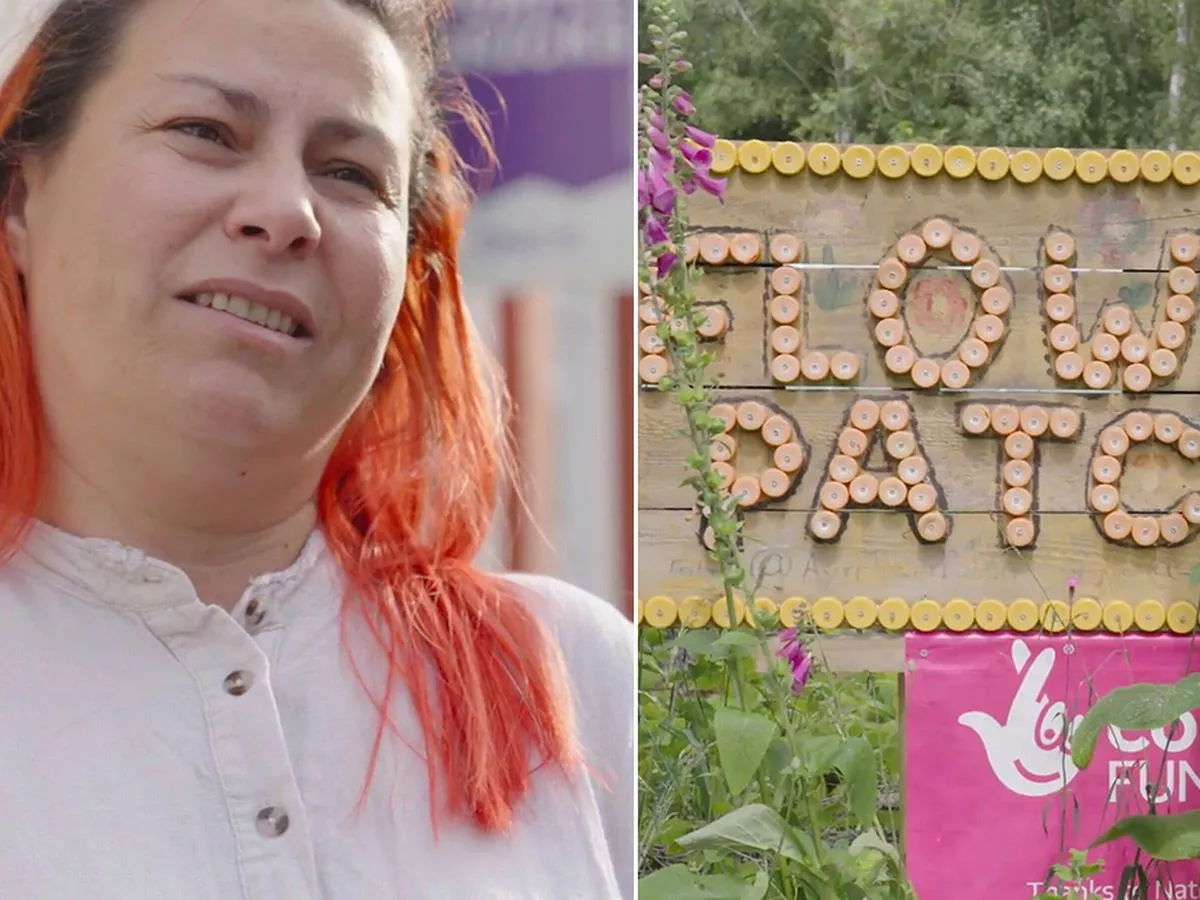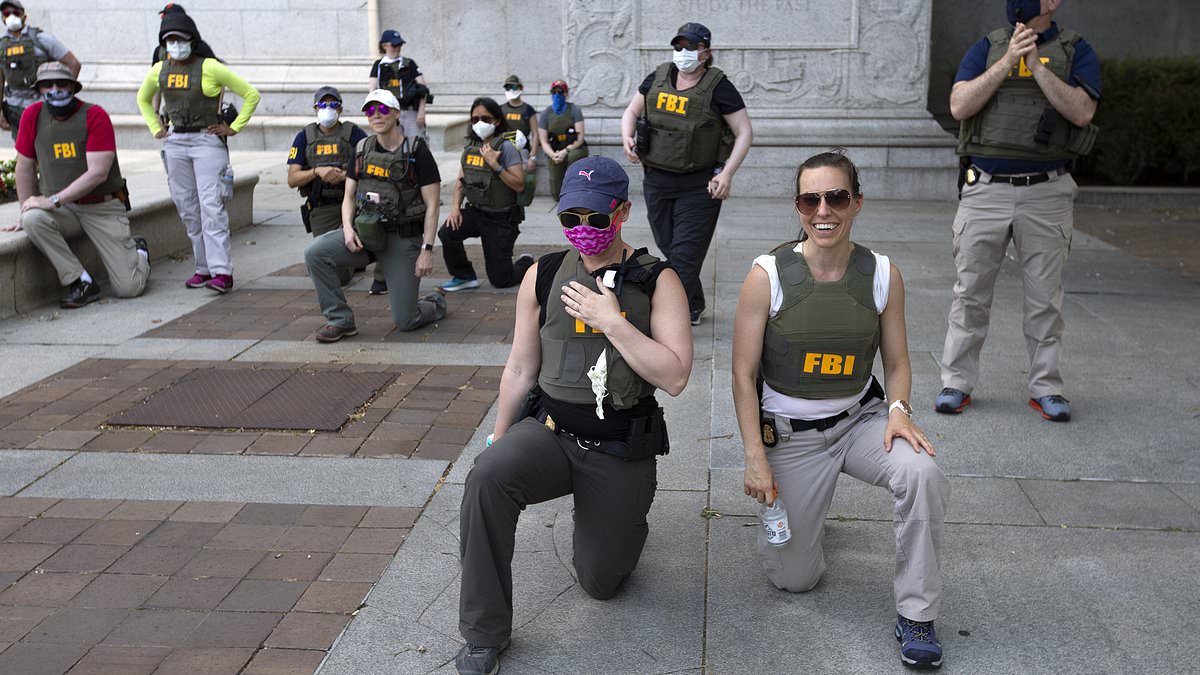Copyright mirror

When anti-immigration riots hit the UK last summer , Riada Kullani felt she had seen it all before. Eleven years ago, when she arrived in Britain escaping a dangerous situation at home in Albania, she found herself a target. After being detained initially in Wakefield, Yorkshire, she was released to shared asylum-seeker accommodation in Stockton-on-Tees. At that time, these rundown houses on streets often marked for demolition shared one tell-tale sign – chipboard doors painted red. Riada shared the house with several women from different countries – many of whom, like her, were deeply traumatised. Night after night, hostile groups would gather outside . “They used to throw cans, whatever they could find, at our windows, calling us names,” Riada, 41, says. “We were scared to come out and go to buy our food.” When she took us to see the terraced house she once shared, she became emotional. “Too many memories,” she said. When the riots happened less than three miles away, a decade later, Riada and others in the refugee community felt the clock turn backwards. “To be honest, we were scared to go outside,” Riada said. “It brings the fear back.” When we set out to make the Mirror’s ‘Island of Strangers’ series with film-maker John Domokos, we knew we needed to include Middlesbrough, one of the towns worst hit by the 2024 riots – which followed the horrific knife attack on a Taylor Swift-themed dance class in Southport , during which three young girls were murdered. In scenes Cleveland Police described as “like a warzone”, hundreds of people, many masked, confronted police, lit fires and targeted businesses in diverse parts of Middlesbrough, during protests that caused more than £750,000 in damage. But Middlesbrough was also the place where local people came out immediately to clear and clean the streets, and to offer help and hospitality to people from other faiths and cultures. Up the road, in Stockton-on-Tees, locals surrounded the mosque with the police to prevent it being attacked. We had heard about a gardening project in Middlesbrough called The Flower Patch, where refugees and people from the local community grow flowers alongside each other and reclaim abandoned green space. The gardens had been repeatedly vandalised, but its patient gardeners went on re-planting under the watchful eye of the Patch’s founder and director, Nicky Morgan. It felt a symbol of resilience and community strength. There we met Riada, a former lawyer in her own country, who taught herself English from watching Peppa Pig and now helps other new arrivals settle into the UK. The Flower Patch, Riada told us, “is not just some planting, it’s really working with our wellbeing and being with nature. We are not just here, as they say, ‘taking the money’ but here to live with local people, to learn from each other and to work together.” Despite facing dark times, Riada is known by her bright hair and clothing, and told us in the film that the first thing she did after being released from detention was to buy some pink trainers. “Even in our home, we don’t know what’s going to happen tomorrow, so I just try to give my life colours,” she says. She described the project as a “big family’ and said spending time gardening as “feeling like you’re breathing.” Speaking to the refugee volunteers – whose visits to the Flower Patch are supported by local charity Refugee Futures as part of a project called Action Asylum – is a window into the many reasons people seek sanctuary in Britain. Riada’s life was in danger because of her legal work. Abubakarr Conteh, 40, escaped civil unrest in his home country of Sierra Leone. While 36-year-old Shirley fled an abusive and controlling marriage – and had to leave her country to escape the violent consequences. When we first met Shirley, she said she could use her name but not her face because she was afraid to show it. As a child, she said, “I was taught to place others before me, to not dream big. I was taught to dim my light, that as a woman, you have your place in the world.” She told us why she had to leave her marriage. “They just want to keep you captive… they just want to control you and abuse you, so I had to walk out of it. It wasn’t easy… I left everything to come and start over with nothing, with just my child." Abubakarr, a dynamic football referee, also said his move to the UK had been “painful”, especially during his time in an asylum hotel. But for him the Flower Patch had become a way of building a “meaningful” life. “Wherever I go,” he said. “I have some value in me.” When the polytunnels were vandalised yet again, it was heartbreaking, but Shirley and the others were used to patiently replanting, whether lives, seeds or flowers. The Flower Patch sells some of its flowers to the local community. When we met Middlesbrough couple Annie and Raph Harrison, who had a Flower Patch bouquet for their wedding, we began to see a thread between the hopeful planting by people like Shirley, Riada and Abubakarr and the lives of everyday Teesiders. “We wanted wild flowers, and also the personal aspect,” Annie told us, explaining that the couple celebrate their wedding anniversary every year with a hand-tied bouquet. “If we’d ordered our flowers from a florist we wouldn’t be able to come here each year. There’d be no personal warmth. I like how wild it is…it’s not perfectly put together.” When we came back for the final time to Middlesbrough, the Flower Patch community had been working its magic on Shirley. “Planting something from the beginning, you nurture it until it has bloomed,” Shirley said. “It has taught me a lot about life, how a bit of self-confidence can really go a long way.” She told us she would now like us to show her face in the film. “The new Shirley is confident to say, ‘this is me’,” she said. “This new Shirley is now coming out. The Flower Patch inspires us. They tell us, ‘look at what you’ve done. If you can take something from the way it was and make it like this, imagine what you can do for yourself’. “If we come together the light will shine brighter, it will be more bright for all of us. I really hope that one day we will reach a point where the community comes together and it’s all light and shining, it will sparkle. We will call it the sparkle in Stockton.” For more info visit refugeefutures.org and allyearroundtheflowerpatchcic.co.uk Search 'Mirror Originals #IslandOfStrangers' on YouTube



